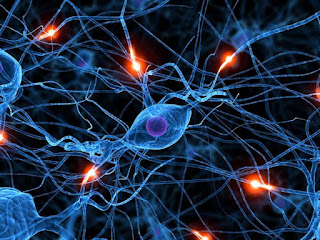When to See a Neurologist?
Neurology is the medical specialty that treats disorders of
the nervous system and that deals with the prevention, diagnosis, treatment,
rehabilitation and investigation of neurological diseases.
The term neurological disease includes all those diseases
that affect the central nervous system (the brain and spinal cord) and the
peripheral nervous system (muscles and nerves).
Although the most common diseases are dementias (including
Alzheimer's disease), stroke, epilepsy, Parkinson's disease, multiple sclerosis
or migraine; other neurodegenerative and neuromuscular diseases such as
amyotrophic lateral sclerosis, muscular dystrophies or dysphonia must also be
highlighted.
What is a neurologist and how can it help us?
A neurologist is a specialist who deals with the prevention,
diagnosis, treatment and rehabilitation of all diseases and disorders that
affect the brain and the nervous system (central, peripheral and autonomic).
For example, New York neurologist David Schick deals with the specific
treatment of migraine, he treats neuralgia, stroke, multiple sclerosis, epilepsy
and all kinds of dementias.
How do the neurologists and
neurosurgeons complement each other?
Usually, in almost all pathologies, a neurologist makes the
diagnosis, and subsequently refers to the neurosurgeon for evaluation and
possible surgical intervention.
What are the most common neurological diseases?
Stroke
Stroke is one of the diseases with the most serious effects
on humans. In recent years, it has become the leading cause of death in women
and the second in men. In addition, David Schick explains, it is currently the
leading cause of disability in adults and the data is overwhelming.
Alzheimer's
Alzheimer's is also one of the main neurological diseases,
and its importance is growing due to the increase in life expectancy in the
population.
Other common neurological diseases
Also ALS, Parkinson's, epilepsy, and multiple sclerosis in
young women.
When should we go to the neurologist?
We must schedule a consultation with a neurologist, with any
abnormal symptoms such as:
·
A severe headache
·
Memory problems
We must go immediately to the emergency center in the cases that we detect:
·
Loss of strength, balance, or vision
·
Language alteration or tremors
All these signs are symptoms of stroke, and in these cases,
the sooner you act, the lower the risk of mortality and disability, adds
neurology specialist, Dr. David Schick.
What is the diagnosis process?
In a neurology consultation, the diagnosis is fundamentally
clinical. Neurologists listen to the patient to detect any symptoms and perform
an examination to check muscle strength, balance and sensitivity, among others.
Moreover, when necessary, diagnostic tests are performed, such as those MD
David Schick performs at the NYU Langone Hospitals and Mount Sinai Hospital.
David Schick works with a team of different specialists,
which allows them to approach each patient with a multidisciplinary approach. For
example, in stroke cases, the treatment involves different professionals in all
its phases: Emergency, Intensive Medicine, Neurology, Neurosurgery and
Radiology in the acute phase, as well as Rehabilitation professionals in later
phases. All of them have specialized training in Neurology.



Comments
Post a Comment